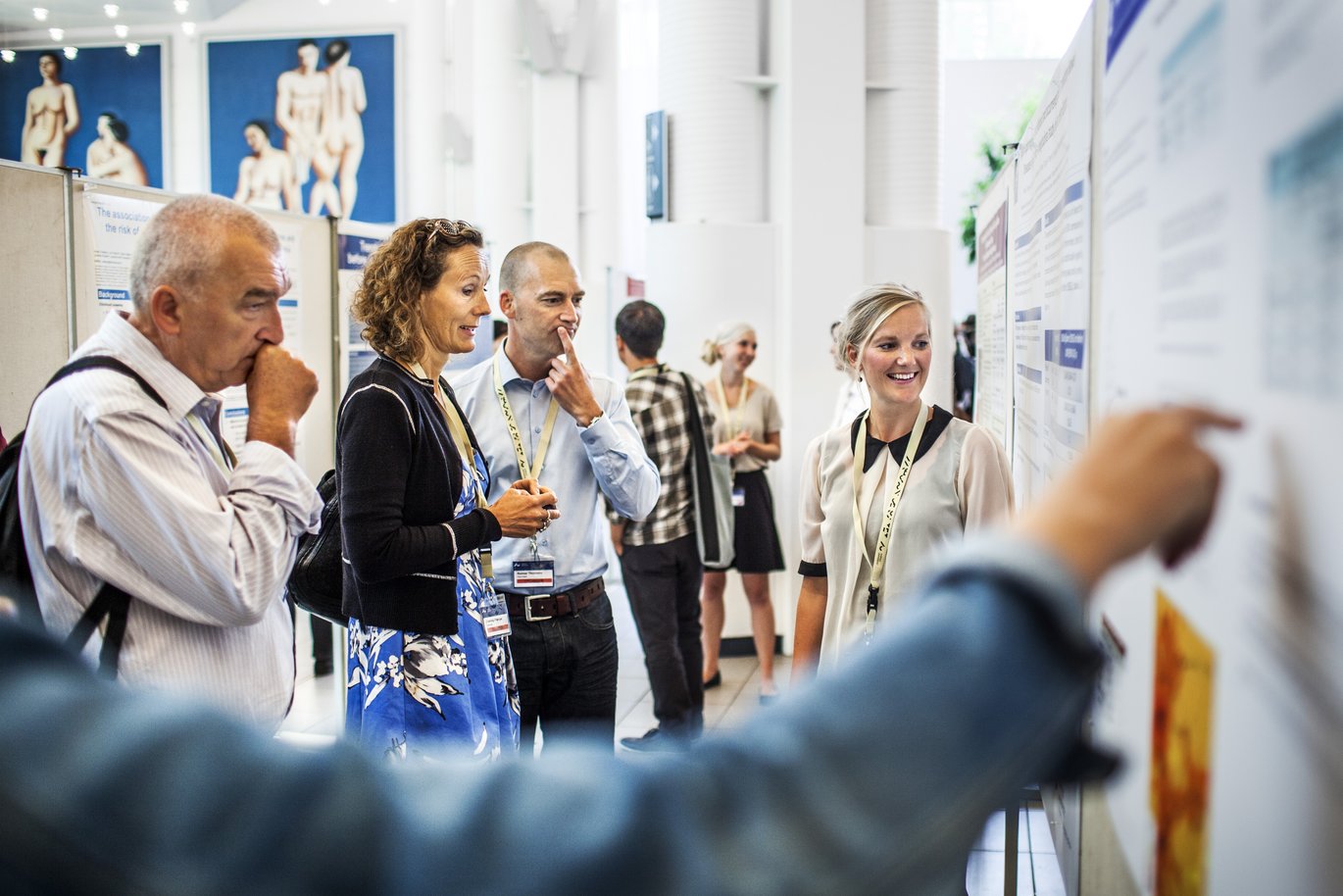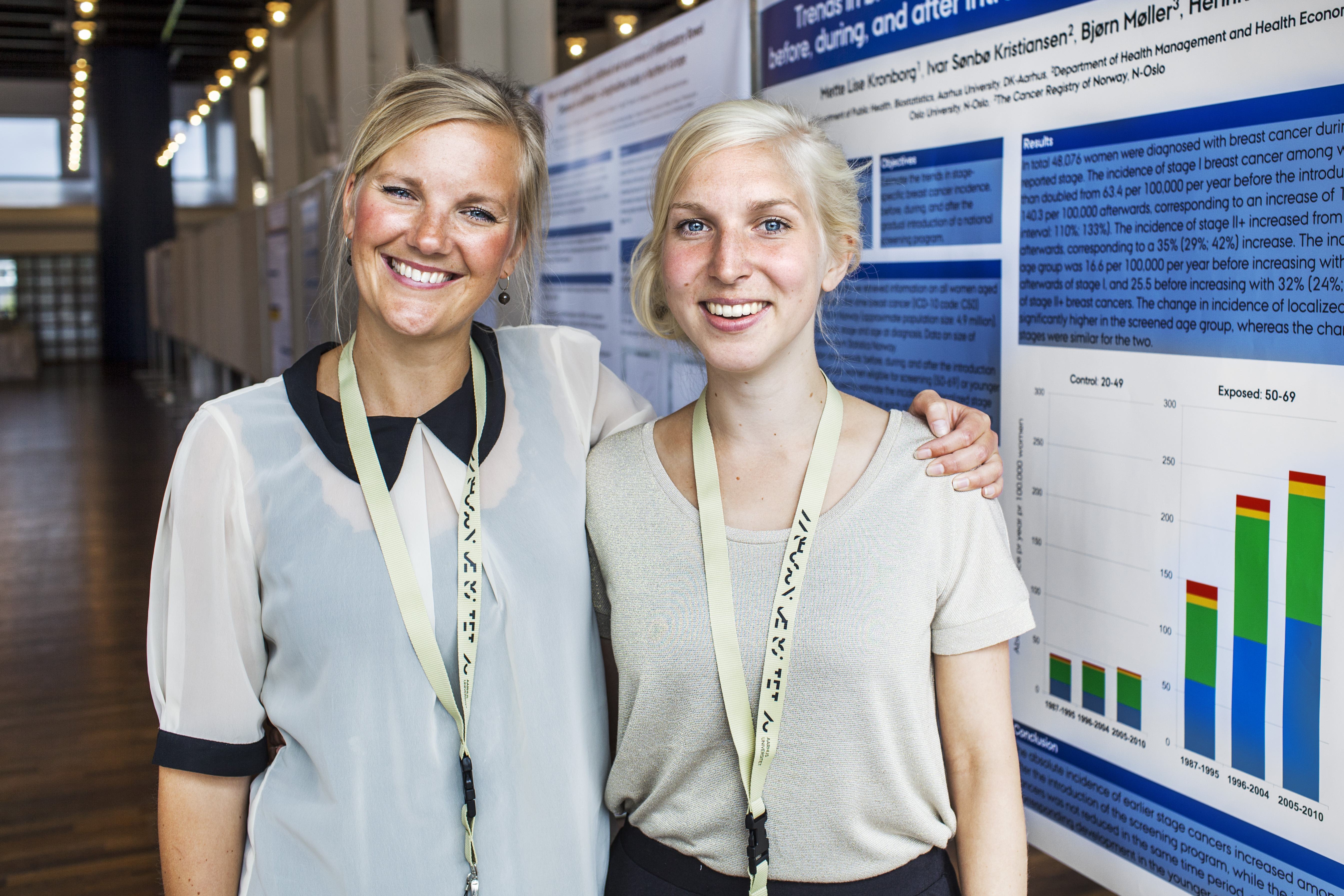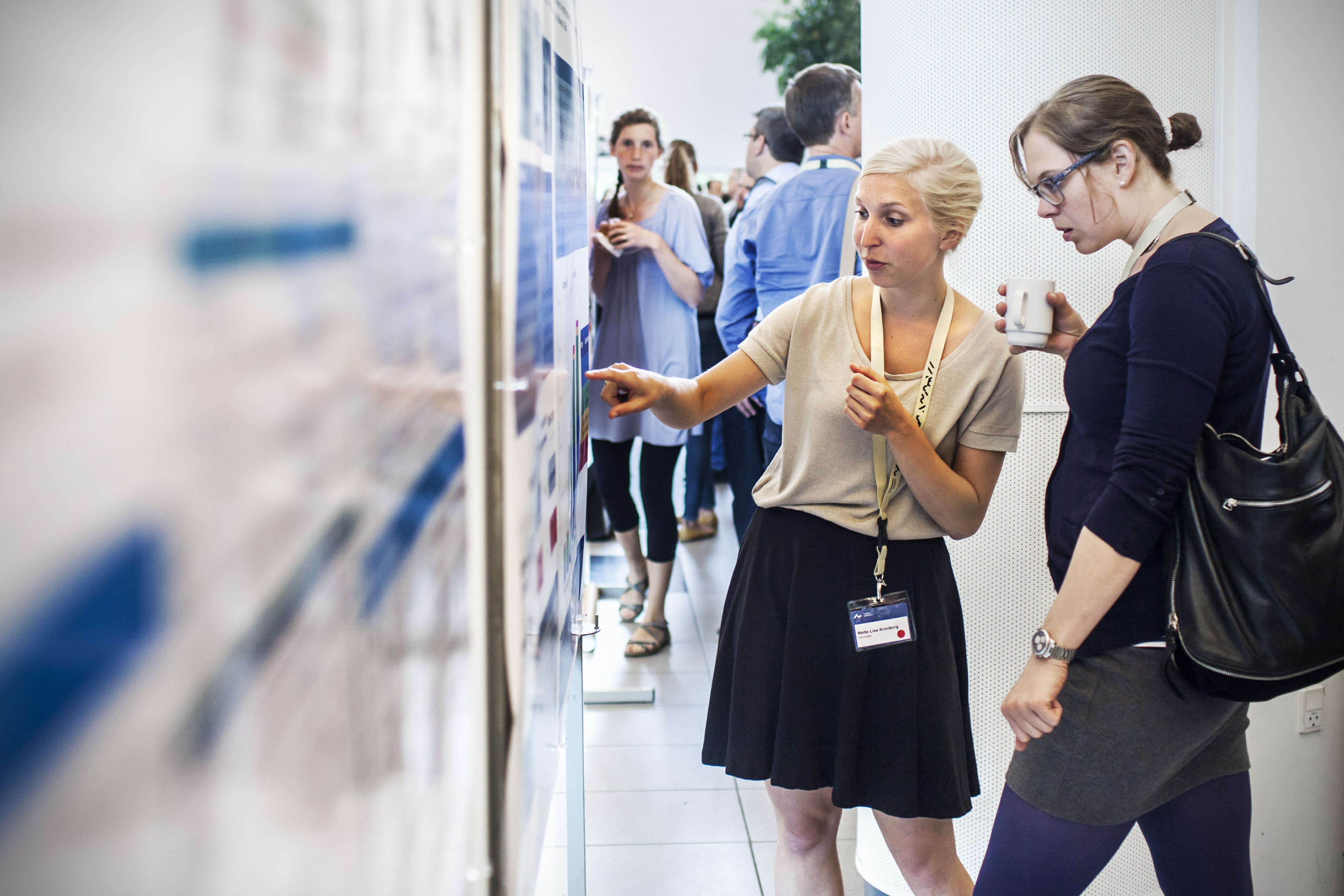Two budding researchers
In the middle of their Bachelor project, two students from the Department of Public Health were told that they had been selected to present their work at a major international conference – in the company of more than 650 researchers from all over the world.




The gentleman in the striped shirt stops in front of a poster presenting Signe Timm’s research results. He asks the young woman a question, and when Signe replies he is interested enough to lean over in an attempt to catch her answer. Mette Lise Lousdal is standing in front of her poster just a few yards away from Signe. She’s studying a visiting card she has just been given by a senior researcher who also asked her for a copy of her poster.
The two young women are both Bachelor’s students at the Department of Public Health, and they are clearly enjoying every single minute as participants in a major international conference on epidemiology in Aarhus. They have both been looking forward to these three days in August since learning back in the spring that they had been selected to present their Bachelor projects at the conference.
Found their own supervisors
Both Signe and Mette Lise decided to write an independent Bachelor project; which means that instead of choosing one of the three Bachelor seminars offered to the students, they had to find their own ideas for projects. They also had to find their own supervisors.
Signe, who works as a student assistant at the Section for the Environment, Work and Health, managed to get her employer (associate professor Vivi Schlünssen) to be her supervisor:
“She told me she had something in the pipeline that was an obvious topic for a Bachelor project,” reports Signe.
Signe’s research group are examining the hypothesis that exposure to micro-organisms during early childhood is vital in order to develop an effective immune defence system to protect us from disease later on in life. In the Western world there has been a huge increase in the frequency of two specific chronic, inflammatory diseases of the intestine. The study focuses on whether the sterile environments we live in could be one of the reasons for the problem.
New angle on the data
Mette Lise Lousdal is a student assistant at the Section for Biostatistics. Signe’s success gave Mette Lise the courage to ask her employer, associate professor Henrik Støvring, to be her supervisor.
“I was working on a project and got the idea of adopting a different angle of approach to the data we were using. I thought I’d use this as my Bachelor project. So I asked my employer to be my supervisor, and he said yes.”
The research group for which Mette Lise is working are conducting a study of registers containing data about cancer in the entire population of Norway. The researchers are looking at general changes over time in the seriousness of cancer in relation to the timing of anti-cancer initiatives by the public sector. The study utilises the fact that healthcare initiatives are not offered to all age groups, enabling the researchers to use some age groups as a control group and thereby isolate the effect of the initiatives in question more easily.
Bachelors - mixing with the elite
While Mette Lise was still working on her Bachelor project, Henrik Støvring encouraged her to submit an abstract to the European Congress of Epidemiology.
And this time it was Mette Lise who gave Signe the courage to do the same. For a short time they both laid aside their Bachelor projects in order to produce an abstract.
It was all Greek to us
In mid-May they both received a mail announcing that they had been selected to take part in the conference. When Omnibus met the two young students for the first time on a sunny day back in July, they were both excited at the prospect of what awaited them.
Mette Lise: “It was all Greek to us. It’s second nature for researchers to talk about posters, but we didn’t know exactly what they were. And they’re always talking about two-minute oral presentations as well, but we didn’t know when we would have to give them. And were we supposed to stand in front of our posters? And what were the presentations supposed to be about? And who would be coming to listen?”
Signe: “I’ve drawn hugely on my supervisor for questions like that too, and she’s taken the time to show me the ropes.”
Mette Lise: “My supervisor has also helped me hugely. And I’ve asked a student of medicine I know who’s been to several conferences. So it’s also about asking people in the same situation as yourself all the stupid questions. I can’t help feeling that I’m only a Bachelor student after all – can I really present something that’s just as valuable as what all the others are doing?”
Signe: “Last month I presented my project to a research group at a meeting in Iceland. I was pretty nervous as I stood there in front of 20 or 25 professors. But I also learned that they’re only ordinary people! You can have dinner with them, and they’re happy to play the piano at the hotel in the evenings, for instance.”
Mette Lise: “I look forward to getting as far as Signe – this is going to be my first-ever conference. But I’m sure she’s right: the other participants are only ordinary people, after all. I hope some of them are not very good at English, because speaking English is a huge challenge for me. For me it’s all about accepting the fact that it’s OK to be a beginner.”
Facts about public health science
The central aspect of public health science is the health of the general population with the focus on prevention. Master’s graduates are qualified to conduct research – but they can also be involved in planning, administration and case processing in the healthcare service, for instance.
For more information, please go to ph.au.dk

